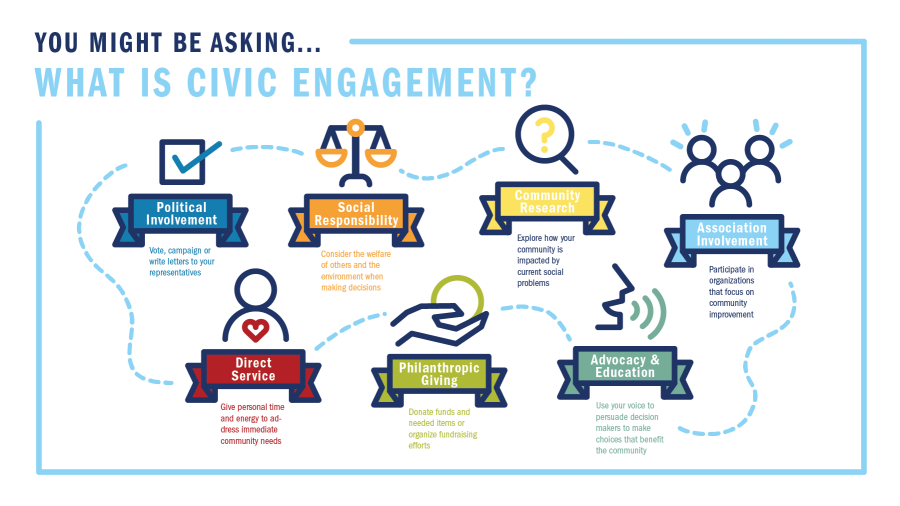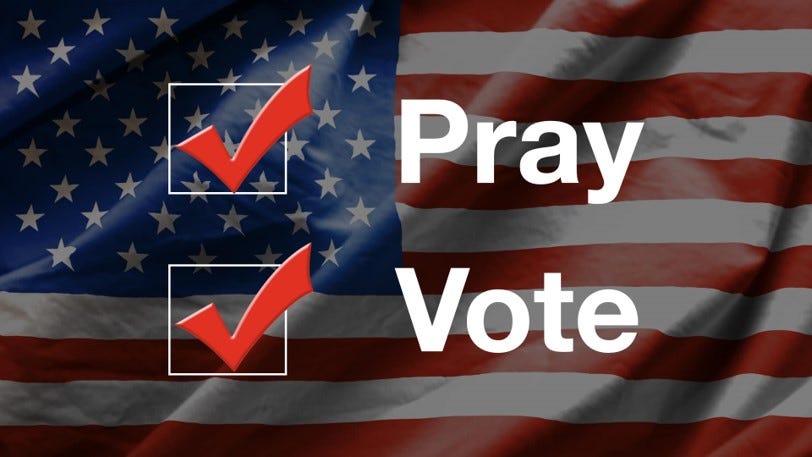Go Vote Today, But the Real Work Starts Tomorrow
While voting is important, civic engagement is the foundation of strong communities. Here are some ideas to be more involved beyond election day.
All efforts for change need a motor behind them that keeps the movement sustainable. Engaged citizens are the lifeblood of change, fueling sustainable community transformation. Always has been, always will be.
Joshua V. Barr
Growing up as an African American living in the South, there were only two solutions given to our communities: vote or pray. No matter what you were going through, voting or prayer was the answer. Don’t like the conditions of your community, vote. Need a new job, pray. Broke your leg, vote??? 🤷🏿♂️
Now that I'm older and see some of the destruction within my community, I recognize that there is much more work to be done than just taking your burdens to the polls (or the Lord) and leaving them there. We have been taught to look to the federal government to solve all of our problems, but I argue that real change happens at the grassroots level in our local communities. Understanding our communities and how to navigate the power structures within them is one of the best ways to drive change.
Don’t believe me about the power of local positions? The banning of Black History classes, books that paint the US in a positive light, and discussions on race came about because right-wing extremists have joined local school boards. The National Education Association (NEA) released an article stating that these extremists are winning local government positions and, according to NEA, these “positions give them a powerful voice in everything from local law enforcement to libraries, trash pickup to textbook purchases.”
Change doesn’t start with the federal government; it begins with the individuals playing an active role in the communities in which they live. This is known as civic engagement. Morally and civically responsible persons recognize themselves as member of a larger social fabric and, therefore, consider social problems to be at least partly their own and know that they must get involved if things are going to improve. Voting is just one cog in a much larger machine of being a responsible citizen.

So, for those of you who genuinely desire to improve their communities beyond election day, here are ten other things you can do to increase your civic engagement in order to transform your communities beyond the ballot box:
Understand Your Type of Government & Who Your Local Representatives Are
There are two primary types of local municipal governments:
Council-Manager Government: The City council oversees the general administration, makes policy, sets the budget, and appoints a professional city manager to carry out day-to-day administrative operations
Mayor-Council Government: The mayor is the full-time Chief Executive, and the City Council is the legislative body making the laws.
Your government entity website should inform you of your ward/district and the representatives of your community.
2. Attend City Council, School Board, and County Supervisor Meetings
Check your government entity website to know when meetings take place. You don’t have to attend every meeting, but you should go to understand what matters are being heard and how decisions are made.
3. Attend Board and Commission Meetings
Most cities have boards of people appointed by the mayor and city council to be the first line of decision-making and advisors to the city council. These persons also have the ear of their elected representatives as they influence how a city council person may vote. It is imperative that you understand the boards and commissions that review issues within your community and become engaged with any board or commission that addresses the issues that can concern your community.
4. Dialogue and Engage with your Community to Better Understand What the Most Pertinent Issues Are
Most people believe that the issues that directly affect us are the most important issues in the world. Try to determine the most significant issues impacting the well-being of your specific community. This will require you to get out of your comfort zone, attend meetings, and dialogue with neighbors with whom you may not typically engage. Being a better advocate and ally requires us to meet others where they are if we are truly going to address the issues affecting our communities.
5. Meet with Your City Council Representatives
Unlike federal and state, city council, county supervisors, and school board members are your neighbors who work in entities that are open year-round. These are accessible people that you should get to know and build relationships with. It is relationships that change hearts and minds. Therefore, meeting with your local representatives and building relationships with them is crucial. Help them see your humanity to prevent them from making decisions that could harm you and your community.
6. Join or Create A Neighborhood Association
Neighborhood associations are an organized collection of neighbors in parts of towns and cities with a direct line to city councilpersons. When trying to effect change in your community, understand that systems recognize power. And when you don't have individual, financial, legal, or political power, all you have left is people power. Organizing a neighborhood association or working within your existing one gives you a foundational base of people that local politicians have historically recognized if they are organized and show up. If you do not have a neighborhood association, learn how to develop one. If one exists but does not speak to your issues, find some like-minded neighbors and infiltrate your local neighborhood association to focus on the issues that matter to you.
7. Join & Donate to Agencies Doing the work
Community transformation cannot be done by any one person alone; You must be organized. Learn more about the local organizations already addressing the issues that matter to your community. If they are effective, join them. But before you donate a ton of money to them, reach out to the leadership team and understand their agenda and successes in executing their agenda.
8. Join Local Boards & Commissions (or PTOs)
As you become more active in the community and understand the issues, it is important to influence those decisions. Joining local boards or commissions is one way to have a considerable influence. To do this, you can contact your local city councilperson to express your interest in being appointed to a specific board or commission. They should be able to guide you through the application process and provide information on current vacancies. If they can’t help you through the process, your local city government clerk should be able to assist you.
9. Have a strategy & plan on how to address community issues. Partner with other organizations & continue to apply pressure.
As the saying goes, “If you fail to plan, you plan to fail.” We must have a plan and a strategy for where we're trying to go. Most people don’t get to their desired destinations in life by accident; therefore, we must have ideas about where we want to be as a community and how we should go about getting there. One question I ask members of communities I conduct dialogues with is, “If you were Mayor for a day and had the power to address any issue in your community within local jurisdiction, what would it be and why?” Once you understand what the issues are that you want to tackle, the next step is to figure out how to go about tackling them. Politicians are not geniuses; they are humans like you and me, and they need ideas and solutions from the community. With just a little bit of research, you would be surprised at how much information is out there about other communities that have addressed or are addressing the same issue(s) happening in your community. Nothing is new under the sun.
10. Vote
Historically, midterm and local elections have not had strong turnouts despite those elections significantly impacting local communities. We must have equal, if not more, engagement in local elections than in presidential ones because it’s the local representatives who determine how government funding will be distributed and spent within a community. Therefore, it is vital to vote for people who will vote and advocate in the best interest of the community at large.
As the world becomes more polarized, this division won’t end at a national level. It starts at home, with community members dialoguing and rallying around the issues that hinder us from thriving as a society. Politicians are not going to save us. We must do the work within our own backyards to save ourselves.
So please vote today and wear your sticker proudly, but please understand that it’s what we do in between our trips to the ballot box that matters most.
“America is presently in a battle for its soul, and the core of its soul is community: the neighborhoods and towns in which we live. The fight is not national, it’s local. We must each do the work necessary in our corners of the nation if we are going to change the nation. And must do it, not alone, but with our neighbors.”
Joshua V. Barr
Some Levity: Strollin’ by SNL
Song of the Week: My Vote Will Count by YelloPain
This Week’s Challenge:
What item(s) on the list above are you already doing? Where can you be more involved or do more?
The Last Word: Vitamin “U” by Joshua V. Barr
###
About Joshua V. Barr
Joshua V. Barr is an Emmy winner, attorney, and human relations consultant who teaches people how to address the problems of their communities so they have the opportunity to thrive. He specializes in helping communities better understand the power of local government and the agency they have to create real, long-lasting change.

